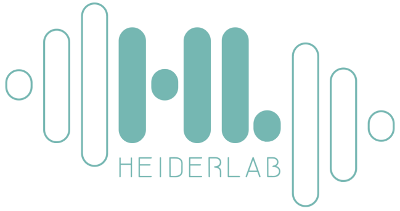CORona Drug InTEractions database
Identifying FDA-approved drugs with multimodal properties against COVID-19 using a data-driven approach and a lung organoid model of SARS-CoV-2 entry.
Duarte, Rodrigo R. R.Copertino, Dennis C.Iñiguez, Luis P.Marston, Jez L.Bram, YaronHan, YulingSchwartz, Robert E.Chen, ShuibingNixon, Douglas F.Powell, Timothy R.
Abstract
Background: Vaccination programs have been launched worldwide to halt the spread of COVID-19. However, the identification of existing, safe compounds with combined treatment and prophylactic properties would be beneficial to individuals who are waiting to be vaccinated, particularly in less economically developed countries, where vaccine availability may be initially limited. Methods: We used a data-driven approach, combining results from the screening of a large transcriptomic database (L1000) and molecular docking analyses, with in vitro tests using a lung organoid model of SARS-CoV-2 entry, to identify drugs with putative multimodal properties against COVID-19. Results: Out of thousands of FDA-approved drugs considered, we observed that atorvastatin was the most promising candidate, as its effects negatively correlated with the transcriptional changes associated with infection. Atorvastatin was further predicted to bind to SARS-CoV-2’s main protease and RNA-dependent RNA polymerase, and was shown to inhibit viral entry in our lung organoid model. Conclusions: Small clinical studies reported that general statin use, and specifically, atorvastatin use, are associated with protective effects against COVID-19. Our study corroborrates these findings and supports the investigation of atorvastatin in larger clinical studies. Ultimately, our framework demonstrates one promising way to fast-track the identification of compounds for COVID-19, which could similarly be applied when tackling future pandemics. Supplementary Information: The online version contains supplementary material available at 10.1186/s10020-021-00356-6.
Source: PMC
Related molecules
Related interactions
| Target | Target affiliation | Drug | Type | Result |
|---|---|---|---|---|
| Target | Target affiliation | Drug | Type | Result |
| Name | Synonyms | Genes | Origin |
|---|---|---|---|
| Name | Synonyms | Genes | Origin |
| Name | Synonyms | PubChem | DrugBank | RCSB PDB | ATC |
|---|---|---|---|---|---|
| Name | Synonyms | PubChem | DrugBank | RCSB PDB | ATC |
| Title | Authors | DOI | Source | Article type | Date |
|---|---|---|---|---|---|
| Title | Authors | DOI | Source | Article type | Date |
| Title | Status | Phases | Start Date | Prim. Comp. Date | Comp. Date | First Post. Date |
|---|---|---|---|---|---|---|
| Title | Status | Phases | Start Date | Prim. Comp. Date | Comp. Date | First Post. Date |
CORDITE (CORona Drug InTEractions database) collects and aggregates data from PubMed, MedRxiv, BioRxiv, ChemRxiv and PMC for SARS-CoV-2. Its main focus is set on drug interactions either addressing viral proteins or human proteins that could be used to treat COVID. It collects and provides up-to-date information on computational predictions, in vitro, as well as in vivo study data.
The information provided is for research only and we cannot guarantee the correctness of the data.
Please contact dominik.heider@uni-muenster.de for further information.
Programmable access
There is an open API for access programmatically to the database. The API will print a JSON output:
- Interactions
https://cordite-api.uni-muenster.de/api.php?action=list&table=interaction
- Targets
https://cordite-api.uni-muenster.de/api.php?action=list&table=target
- Drugs
https://cordite-api.uni-muenster.de/api.php?action=list&table=drug
- Publications
https://cordite-api.uni-muenster.de/api.php?action=list&table=publication
- Clinical trials
https://cordite-api.uni-muenster.de/api.php?action=list&table=clinical_trial

